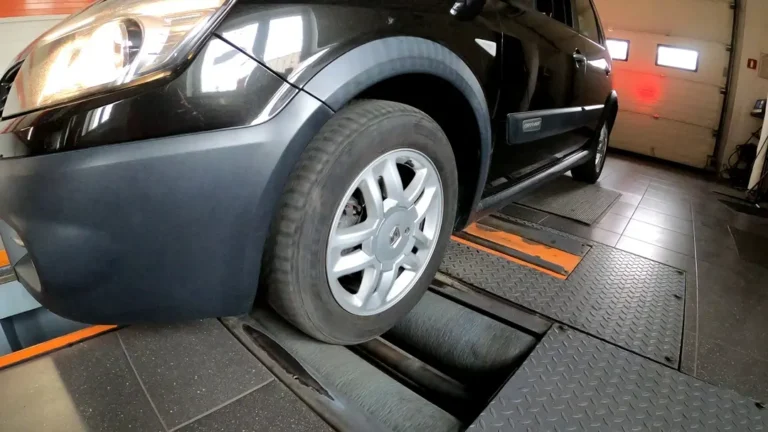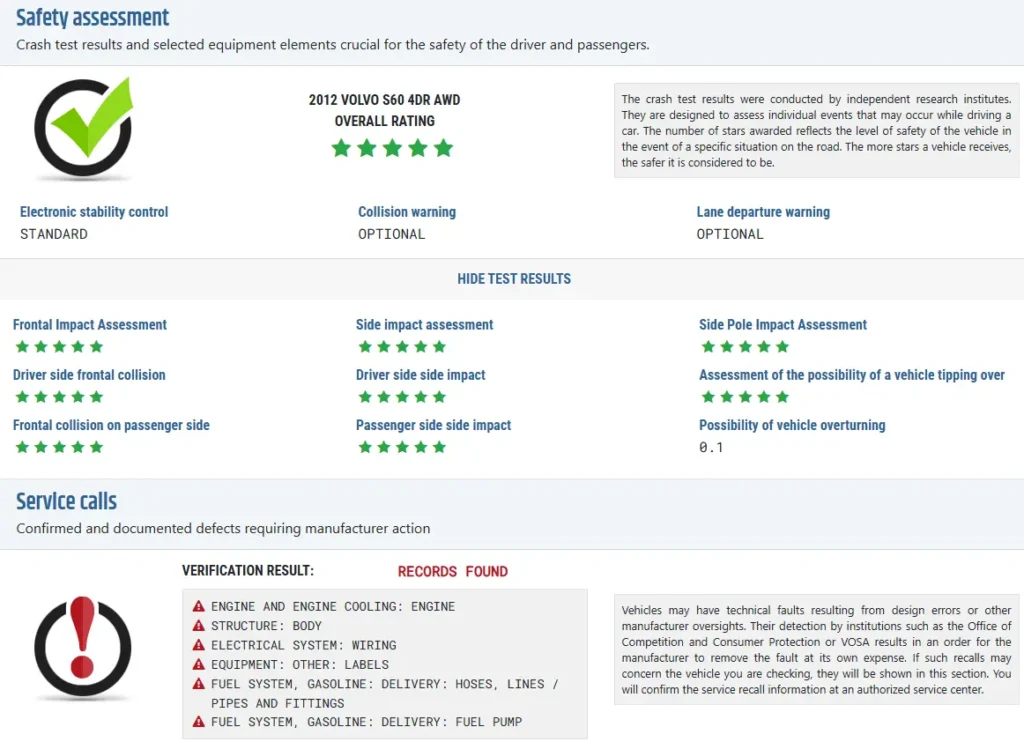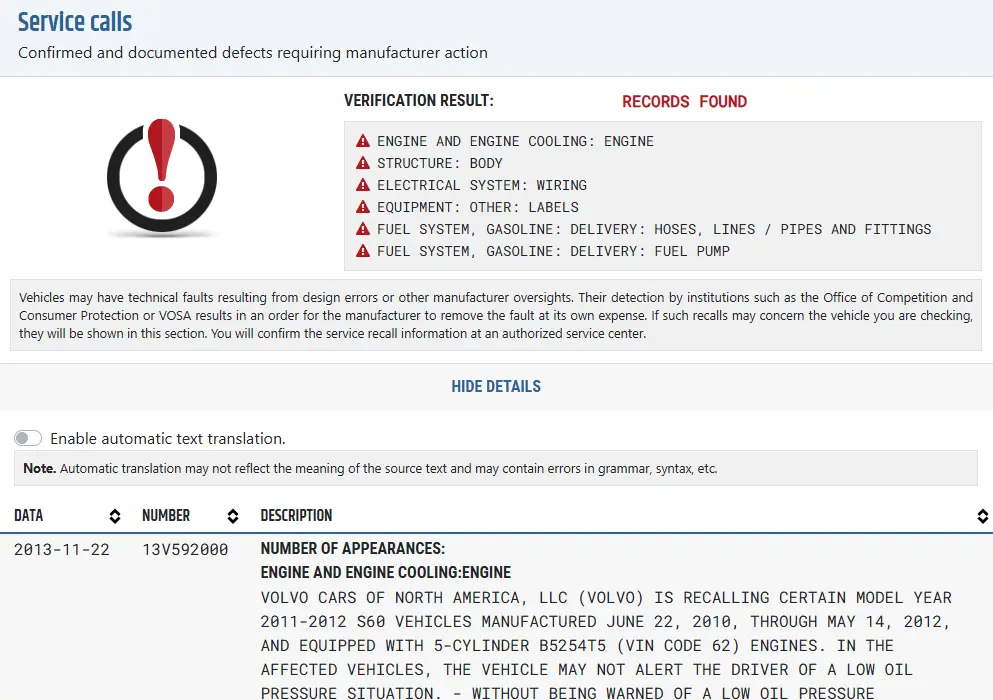
In today’s world, ensuring the safety of our vehicles has become more crucial than ever. With the increasing number of recalls issued by manufacturers, it is essential for vehicle owners to remain informed about potential safety defects in their vehicles. One of the most effective ways to check for recalls is through a Vehicle Identification Number (VIN) lookup. This article will delve into the significance of vehicle recalls, how to perform a VIN lookup, the latest recalls, and what steps to take if your vehicle is subject to a recall. Understanding these aspects not only keeps you informed but also protects you and your loved ones on the road.
What is a Vehicle Recall and Why is it Important?

Understanding Vehicle Safety Recalls
A vehicle recall occurs when a manufacturer or the National Highway Traffic Safety Administration (NHTSA) identifies a safety-related defect or noncompliance with federal motor vehicle safety standards. These recalls are essential for addressing potential safety issues that can arise from defects in the vehicle or its equipment. When a recall is issued, it is critical for vehicle owners to respond promptly by checking for recalls related to their specific make and model. This ensures that necessary repairs or replacements are performed to maintain vehicle safety and performance.
The Role of the NHTSA in Vehicle Recalls
The NHTSA plays a pivotal role in overseeing vehicle safety recalls. As a federal agency, the NHTSA monitors manufacturers to recall vehicles that may pose safety risks to the public. They maintain a comprehensive database of recall information, which includes details about each recall, the affected vehicles, and the nature of the defect. By providing this information, the NHTSA empowers vehicle owners to take proactive measures to ensure their vehicles are safe to drive. Vehicle owners can access this data to check for recalls by simply entering their 17-character VIN in the Automoli lookup tool.
How Recalls Affect Vehicle Owners
When a vehicle recall is announced, it can significantly impact vehicle owners. Recalls can lead to various inconveniences, such as temporary vehicle unavailability while repairs are made. However, it is crucial to understand that these repairs are often provided at no cost to the vehicle owner. Being informed about open recalls is vital, as unrepaired recalls can lead to serious safety issues and diminish the overall safety rating of the vehicle. Vehicle owners should regularly check for recalls to protect themselves and their passengers.
How to Perform a VIN Lookup for Open Recalls?

Using the Automoli Search Tool for VIN Lookup
The Automoli offers a user-friendly VIN lookup tool that enables vehicle owners to quickly check for open recalls. By accessing the Automoli’s official website, users can enter their vehicle identification number and receive immediate recall information specific to their vehicle. This tool is a vital resource for anyone looking to ensure the safety of their motor vehicle. Additionally, it is important to check for recalls periodically, as new safety recalls may be issued at any time.
Steps to Check for Open Recalls Using Your Vehicle Identification Number
To perform a recall check by VIN, begin by locating your vehicle’s 17-character VIN, which can typically be found on your vehicle’s dashboard, driver’s side door jamb, or on your insurance documents. Once you have your VIN, navigate to the Automoli’s recall lookup tool. Enter your VIN into the designated field and submit your request. The system will return detailed recall information, including whether your vehicle has any open recalls, the nature of the defect, and the steps required to address the issue.
Interpreting the Recall Information from Your VIN Lookup
After completing the VIN lookup, it’s essential to understand the recall information provided. If your vehicle is subject to a safety recall, you will find details regarding the specific defect and the recommended corrective action. The information may also include instructions on how to contact your vehicle dealer for repairs. It’s important to note that some recalls may involve specific model years or configurations, so vehicle owners should verify that their vehicle falls within the affected range. Promptly addressing these recalls is crucial for maintaining vehicle safety.
What are the Latest Vehicle Recalls Announced?
Staying Updated on the Latest Recall Alerts
Keeping abreast of the latest vehicle recalls is essential for all vehicle owners. Manufacturers frequently announce new recalls due to emerging safety defects or compliance issues. The NHTSA provides regular updates on these recalls, and vehicle owners should make it a habit to review this information regularly. By staying informed, you can promptly respond to any safety-related alerts and ensure that your vehicle is operating within established safety standards.
How to Access Latest Recall Information
Accessing the latest recall information is straightforward. The Automoli website serves as the primary source for recall updates, where vehicle owners can find comprehensive details about the most recent recalls. In addition to the VIN lookup tool, Automoli also delivers full vehicle‑history reports that reveal a car’s true past: odometer readings to expose any mileage tampering; accident history, damage and valuation records—often with archival photos and accidents cost estimates; notes from periodic technical inspections; theft‑status checks; detailed factory specifications and equipment lists; current fair‑market‑value estimates; plus manufacturer service procedures and any documented service history. All of this data is aggregated from insurance databases, salvage auctions, governmental registries and authorised service networks, giving buyers the clarity and confidence they need before committing to a purchase.
Manufacturer-Specific Recalls: What to Know
It’s also important to note that certain recalls may be manufacturer-specific. Different manufacturers may have varying policies regarding how they handle recalls, including the timeline for addressing defects and the types of repairs offered. Understanding these manufacturer-specific practices can help vehicle owners navigate the recall process more effectively. Always refer to the manufacturer’s website for additional information and resources regarding recalls affecting their vehicles.
What Should You Do if Your Vehicle is Subject to a Recall?
Steps to Take When You Receive a Recall Notice
If you receive a recall notice for your vehicle, it’s imperative to take immediate action. The notice will typically provide details about the defect, the potential risks involved, and instructions for arranging repairs. Start by reviewing the information carefully and noting the urgency of the repair. If your vehicle is still under warranty, the repairs may be covered at no cost to you. It’s advisable to contact your local dealer as soon as possible to schedule the necessary repairs.
How to Arrange Repairs for Safety Recalls
Arranging repairs for safety recalls is a straightforward process. After contacting your dealer, you will need to provide them with your vehicle identification number and the recall notice. The dealer will then inform you about the repair process, including the expected timeline and whether you need to make an appointment. In many cases, dealers prioritize recall repairs to ensure vehicle safety, so don’t hesitate to reach out to them for assistance.
Understanding Your Rights as a Vehicle Owner
As a vehicle owner, it is important to be aware of your rights regarding recalls. The law mandates that manufacturers must address safety defects and provide necessary repairs free of charge. Additionally, if a manufacturer fails to address a recall adequately, the NHTSA can intervene to ensure compliance. Understanding these rights empowers vehicle owners to advocate for their safety and hold manufacturers accountable for any safety-related issues.
Common Safety Issues Leading to Vehicle Recalls
Identifying Safety Problems with Your Vehicle
Common safety issues that lead to vehicle recalls often include defects in brakes, airbags, steering, and electrical systems. These safety-related defects can pose significant risks to vehicle owners and others on the road. Regularly inspecting your vehicle and staying attuned to any unusual behavior or warning lights can help you identify potential safety problems before they escalate into serious issues. If you suspect a defect, it’s crucial to report your concerns to the NHTSA and check for any open recalls.
Preventative Measures to Avoid Safety Issues
To prevent safety issues from arising, vehicle owners should engage in regular maintenance and inspections of their vehicles. Following the manufacturer’s recommended service intervals can help identify and address potential problems early. Additionally, being proactive about checking for recalls and addressing them promptly can mitigate risks associated with safety defects. By taking these preventive measures, vehicle owners can enhance their vehicle’s safety and reliability.
The Impact of Recalls on Vehicle Safety Ratings
Vehicle recalls can significantly impact safety ratings assigned to vehicles. When safety defects are identified and addressed, it can improve the overall safety rating of the vehicle. Conversely, failing to address open recalls may lower a vehicle’s safety rating, potentially affecting resale value and insurance premiums. Understanding how recalls influence vehicle safety ratings reinforces the importance of staying informed and responsive when it comes to addressing recalls promptly.







